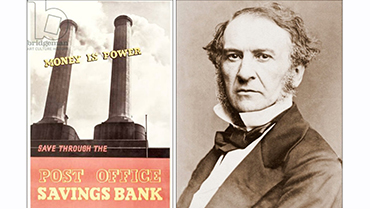The Australian Alert Service is the weekly publication of the Australian Citizens Party.
It will keep you updated on strategic events both in Australia, and worldwide, as well as the organising activities of the Citizens Party.
To subscribe to the Australian Alert Service, it's easy, and it's secure.
Lead Editorial
30 November 2022
Vol. 24 No. 48
For decades the Australian Citizens Party has fought for a national bank above all else, as the banking system is the framework that defines whether we have economic sovereignty and a successful economy. For much of that time we were almost a lone voice, with a few exceptions. Following the final privatisation of the Commonwealth Bank in 1996—completed by the Liberals but started by Labor in a shameful capitulation to the bankers “old” Labor once denounced as the “Money Power”—the ACP’s fight for a national bank earned the derision of the major parties which adopted the neoliberal ideology that government should not be involved in banking.
Once seemingly entrenched in bedrock, this ideology has progressively weakened in the wake of the 2008 global financial crisis and the 2018 banking royal commission. The ACP has been in the middle of the fight to force the government to stand up to the banks, including through our latest campaign for a national postal bank. This week, Parliament’s last sitting week of the year, that fight boiled over into a fullblown, multi-party revolt against the Money Power, documented in this week’s AAS.
It started with the backlash to Labor’s Finance Minister Stephen Jones bending the knee to the banks over the law to fine bank executives for ripping off customers (p. 3). In a Matter of Public Importance debate on 28 November, a cross-party group of Senators including Liberals, Greens, One Nation and an Independent, denounced the power display by the banks. “The banks wanted everyone … to know that in fact it is the big bankers who are in charge of this place”, Greens Senator Nick McKim charged (see pp. 4-6 for the transcripts of the speeches by McKim, Senator Gerard Rennick, and others).
The same day, some of the same Senators including McKim and Rennick confronted the high priest of Australian finance, Reserve Bank Governor Philip Lowe (p. 6). Just having politicians demand accountability from the RBA Governor is a sea-change, but asserting Parliament’s sovereignty over the RBA and banks, as they did, is revolutionary!
The significance of this revolt cannot be overstated. It’s a continuation of a power struggle that goes back centuries over who controls nations—accountable governments or unaccountable financiers who control the purse strings. The fight was waged by Alexander Hamilton, John Quincy Adams, Abraham Lincoln and others in the USA; King O’Malley, John Curtin and Ben Chifley in Australia. It was even waged in the UK, for centuries the seat of private financial power centred in the City of London.
Mid-19th century British Prime Minister William Gladstone described the same battle in this amazingly frank quote taken from John Morley’s The Life of William Ewart Gladstone:
“From the time I took office as chancellor of the exchequer I began to learn that the state held in the face of the Bank [of England] and the City [of London] an essentially false position as to finance. … The hinge of the whole situation was this: the government itself was not to be a substantive power in matters of finance, but was to leave the money power supreme and unquestioned. In the conditions of that situation I was reluctant to acquiesce, and I began to fight against it by financial self-assertion from the first, though it was only by the establishment of the Post Office Savings Banks and their great progressive development that the finance minister has been provided with an instrument sufficiently powerful to make him independent of the Bank and the City power…” (Emphasis added.)
As you can see, this really is the same fight we’re waging today, including for a post office savings bank! As Senator McKim charged, the Money Power is flexing its muscles with this new government, demanding it remain “supreme and unquestioned”.
A national postal bank will free the government from having to go begging to bankers, so it can serve the people.
In this issue:
- Financial Services Minister bends the knee to the banks
- Senate debate excoriates Labor’s capitulation to the banks
- Senators slam hypocritical ‘high priests’ at the RBA
- Senators prosecute RBA assault on Australians’ welfare
- Banking taskforce report opens the gates for mass closures
- How to tell a real inquiry from a show-trial: a case study of the ‘Uyghur Tribunal’
- Phone calls and emails work!
- Time to lift the lid on BIS secrets
- ALMANAC: A bank for the nation - Part II
Click here for the archive of previous issues of the Australian Alert Service








